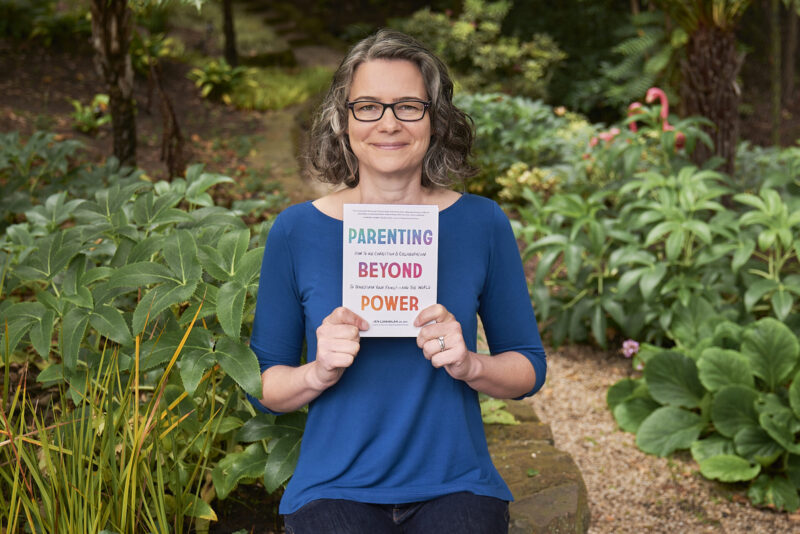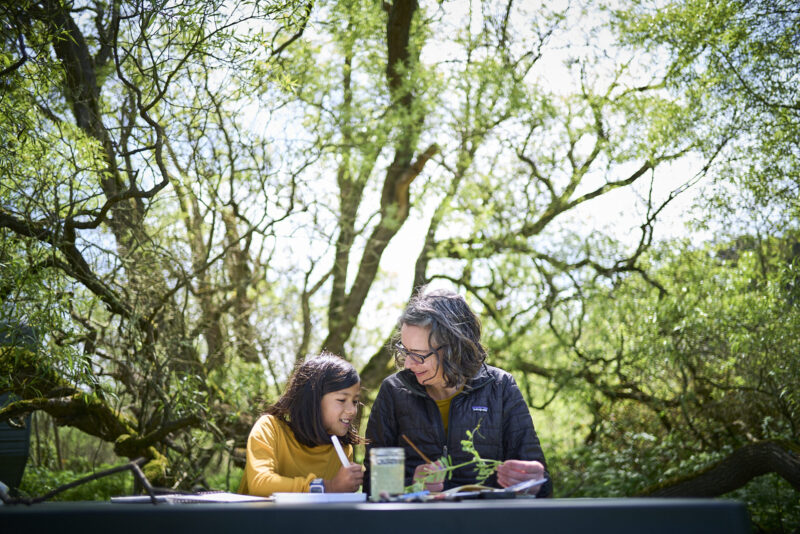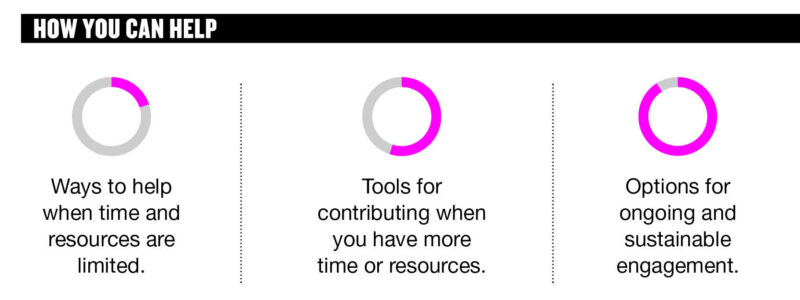By Jenn Wint
As the parent to a four and six year old who have big questions about the world, I am always on the lookout for tools to have tough, yet real, conversations. My aim is to model the behavior I want to see in my kids but on many issues I’m still learning myself. Anti-racism, holding boundaries and breaking out of learned gender and societal roles are issues I want my kids to understand and grow up with different views that I had.
I was excited to hear that Jen Lumanlan, host of the research-based parenting podcast, Your Parenting Mojo, had written a book on the connections between social challenges and the struggles of parenting. Parenting Beyond Power: How to Use Connection & Collaboration to Transform Your Family - And the World, published by Sasquatch/Penguin Random House, came out September 5th offering a revolutionary framework for rethinking our relationships with children.
In addition to being a podcast host, Jen is the parent of an eight-year-old and holds two Master's degrees in Psychology focused on Child Development and in Education. Here’s the conversation we had, where I asked all my questions about parenting, power and if it’s possible to make the world a better place in one generation.
JW: What inspired you to write your book Parenting Beyond Power?
JL: I started the Your Parenting Mojo podcast seven years ago. I have no parenting intuition and fairly crummy parenting role models, and I wanted to fill the gap with research. I always looked critically at academic research. A good deal of the research on parenting and child development has small sample sizes of eight white children, and yet the results are described as if they’re applicable to everybody.
I heard an episode of Black podcaster Malaika Dower’s show, How to Get Away with Parenting. She shared that black parents and children can't walk into a grocery store, holding their own food, because somebody might think they stole it. A parent of a black boy might feel terrified that the child might have a meltdown in a public place because there's nothing less safe to white people than an out-of-control black boy.
Up to that point, I knew what racism was and I knew what structural racism was. Then I realized that I had white privilege as a parent; the unearned privilege to have my needs met at the expense of other people’s needs, and I had absolutely no idea about it. I started exploring these really big social issues on the podcast, starting with race and moving into patriarchy and capitalism.
I also run a membership for parents and over there I was getting questions like: How do I get my kid dressed in the morning? How do I get my kid in the car? Or to brush their teeth? It was like I was walking along two parallel tracks with no connection between them. Eventually I realized the ways parents were dealing with their children’s difficult behavior and the big social challenges are connected through the ways that we interact with our children on a daily basis. And this is not happening in conversations that seem like they're about race, which of course are also needed, but in conversations that seem like they're about discipline. That is where we demonstrate ideas about power to our children. If we're attending a Black Lives Matter protest and holding up a sign saying “Fight the Power” and then we're going home and forcing our children to brush their teeth, then our actions with our children are not reflecting the values that we are demonstrating when we're out in public.
I wrote the book to help parents see the connections between those big ideas and the daily parenting struggles, and then offer a roadmap for how to be with children that is in alignment with their values. It’s for parents who typically think of themselves as liberal, but because Conservatives have been successful at shaping our political and family structures, the ways we, liberal parents, interact with our children reflect a power over them that doesn’t fit with our values of care and respect for others. Our own parents - who may have wanted nothing but the best for us - raised us to be successful in this white supremacist, patriarchal, capitalist culture, which profoundly hurt us. That’s why we carry around so much shame, and think that other people won’t love us if we show them our real selves.
If we raise our children the same way our parents raised us, we're going to replicate that hurt into the next generation. Instead, if we can move away from that power and domination model, maybe we can actually enact the values that we hold to be true in our relationships with our children, which then shapes how they will go out into the world and treat other people. Overall, it’s a message of hope - these changes can make a big social impact, and they also make parenting so much easier!

JW: Do you think it's possible to change social norms for our kids in one generation?
JL: Do I think we can change them? Yes. Do I think we can change them as radically as we might want them to be changed for everybody to be able to live in full alignment with the values of fairness and care for others? Perhaps not.
There’s a quote I like that’s been attributed to various sources: “Blessed are those who plant trees under whose shade they do not expect to sit.” I don't expect this work to be done in my lifetime or even my daughter's lifetime. And frankly there are a lot of people in the world moving in the other direction, who think that White supremacy, patriarchy, and capitalism represent the natural order of the world and any movement away from that is a threat to the fabric of our society.
But I do think that I can profoundly change the way that my daughter and I exist in relationship with each other. And that when I can be in a relationship with her that shows her that she is a person who has needs and she has a right to get those needs met, and I'm a person who has needs and I have a right to get those needs met as well, she’ll have a model to take out into other relationships.
I already see how it's happening in our local communities. My hope is that with more parents sharing these ideas we can start to ripple out and they can exist more broadly in the world. So complete social change, no, but setting us on a path to healing instead of perpetuating hurt, yes.
JW: How would you define power?
JL: I think power is about the ability to take an action. The second element is the ability to get somebody else to do something; the ability to exert influence or control over somebody. This gets to the heart of the connection between the parenting issues and the social justice issues, because at its core, I see the three main challenges we face, white supremacy, patriarchy, and capitalism, are ultimately all about having and using power over other people. White supremacy is about white people having more power over everybody else. Patriarchy means men should have power over homosexuals, transgender people and anyone lacking masculinity as well as all women. And capitalism is about money creating power.
All of these social issues have power at their core and also our relationships with children have power at their core. So how can we find a way to meet our child's needs and meet our needs? That's how our children learn about power, not from the lessons we teach them about respecting others. They hear that but when we then turn around and use our power over them, they take the lesson of our actions, rather than the lesson of our words.
When we show them how to be in power-sharing relationships, firstly they stop resisting us. Nobody likes being told what to do, and very often our children are willing to collaborate with us when they see they have a real choice. Secondly, they see other people’s needs as just as valid as their own, and know how to meet two people’s needs, instead of always having a winner and a loser. This means that more people in the world can have their needs met and exist as whole people, instead of hiding the parts of ourselves we think the world doesn’t want to see.
JW: What are your suggestions for discussing issues like white supremacy, patriarchy and capitalism with young or school aged children?
JL: One of the most effective ways I have found is to point it out when we see it around us. When I’m rereading books from my childhood like those written by Enid Blyton, I now see that they are stuffed with patriarchy and white supremacy- the parents are always “In Charge and Know What’s Best for Everyone”, and the ‘bad’ characters are often overweight and have dark features,. My daughter can spot who's going to be the villain from the very first description because together we have been pointing these out as we read. We talk about disparities between female and male representation and about how people make money and the choices needed to live in the systems they have no control over. In Black Beauty we discussed the capitalist-based ‘choice’ that a stablehand made to leave his mother, family, and a job with a family and horses he loved to take a position far away because it offered more money.
JW: And you call these issues by name, white supremacy, patriarchy and capitalism?
JL: Yes! These social systems are part of how our world works. If we want our world to be different, we have to notice the systems where they are and name them. It’s kind of like saying “penis” and “vulva” - it can feel really weird and scary the first time but the more you do it, the easier it gets.
JW: Was there anything in the research you did for the book that surprised you?
JL: Since finishing the book I’ve been pleasantly surprised that I keep finding more ideas that underline what I discuss in the book. I continue to find more books, more ideas, more research, more people talking about these things in a way that confirms what I’m speaking to around needs and power.
I particularly enjoyed reading Dr. Jonathan Haidt’s The Righteous Mind, and Dr. George Lakoff’s Moral Politics, which both explore these issues in depth, as they articulate the tension between the Conservative, power-based structures most of us were raised with, and our liberal values of care and fairness.
JW: You’ve said, ‘children don’t listen to our words; they watch what we do.’ Is this a call to action for parents?
JL: Yes, definitely. If we can find ways to meet both of our needs, both ours and our child’s, the vast majority of the time, then we are living and modeling our values. When we live in a way that is not domineering, we give our children a living model of what a world could look like where everybody's needs are seen and met and respected and I don't believe that white supremacy, patriarchy and capitalism can exist in that world.

JW: What are your tips for raising kids with the skills and understanding to be confident in addressing these issues in their social circles?
JL: Kids are taking it all in even when we don’t realize it. The best way to engage them in this work is by being upfront about the things that you see in the world around you, using books and videos and not being afraid to continue conversations from issues they're discussing at school or issues they’re hearing about on the news.
Another aspect is being able to see that multiple people have needs and that multiple people deserve to have their needs met. What we need is kids who can see that even though a comment wasn't about them or affects them directly, it still isn't right, and it's still worth standing up for. We want our children to be able to check in and ask themselves, Does that feel good to me? Does that align with my values and with my needs? And if the answer's no, we want them to be able to say, no, that doesn't work for me - and they get practice in doing that through the ways we meet needs in our relationship with them.
If the issue is coming up among their friends, they may choose to speak out directly. If a person in a position of power, like a teacher, is misusing that power, our culture might say it’s not acceptable for a child to speak up - but they can still come to us afterward. We model that when we speak up about things that don’t fit with our values and let them see us doing it.
JW: Where can we find your book Parenting Beyond Power?
JL : The book will be available on September 5th on Amazon, through my website or you can order it anywhere you get books. You can even download an e-book on a gift economy basis on my website. I’m trying to move toward dismantling capitalism - even as I still have very real bills to pay!
JW: What can you tell us about your speaking tour and upcoming events?
JL: We’ve kicked off our book tour and event series. We’re doing an event with a great panel of speakers called Culture Talks - Building Real Community: At Every Scale on Sept 16th in Vancouver, Canada which I’m excited about. There’s another event in Seattle on October 11 and more coming up in Portland and the Bay Area. All the info and ticket sales are on the events page of my website.

![]() Try a different style of parenting. Take my quiz and find out what your child’s intense, difficult, and annoying behavior is trying to communicate.
Try a different style of parenting. Take my quiz and find out what your child’s intense, difficult, and annoying behavior is trying to communicate.
After a year of chaos and uncertainty, our mission for ISSUE 03 of RIPPLE OF CHANGE is to spark inspiration in our readers. There was a lot of talk of coming together, acting in solidarity for our peers, and putting others before ourselves to overcome the challenges put before us. Now, we put that to the test.
Order your copy of Issue 03 today!
